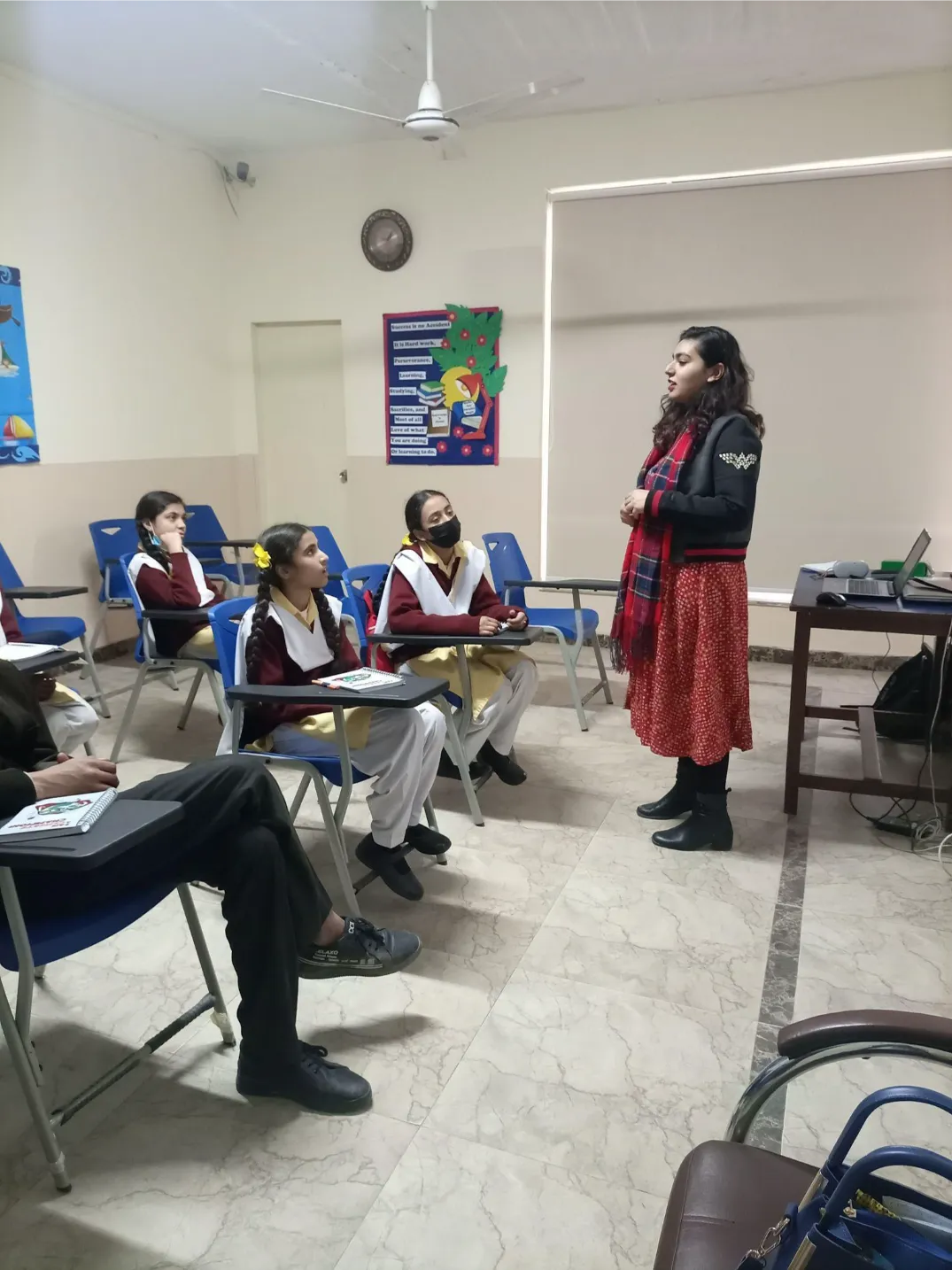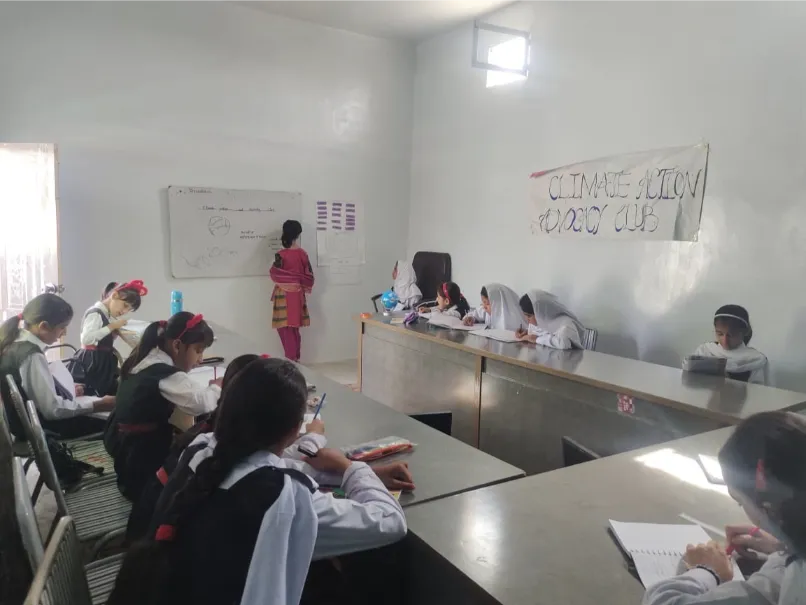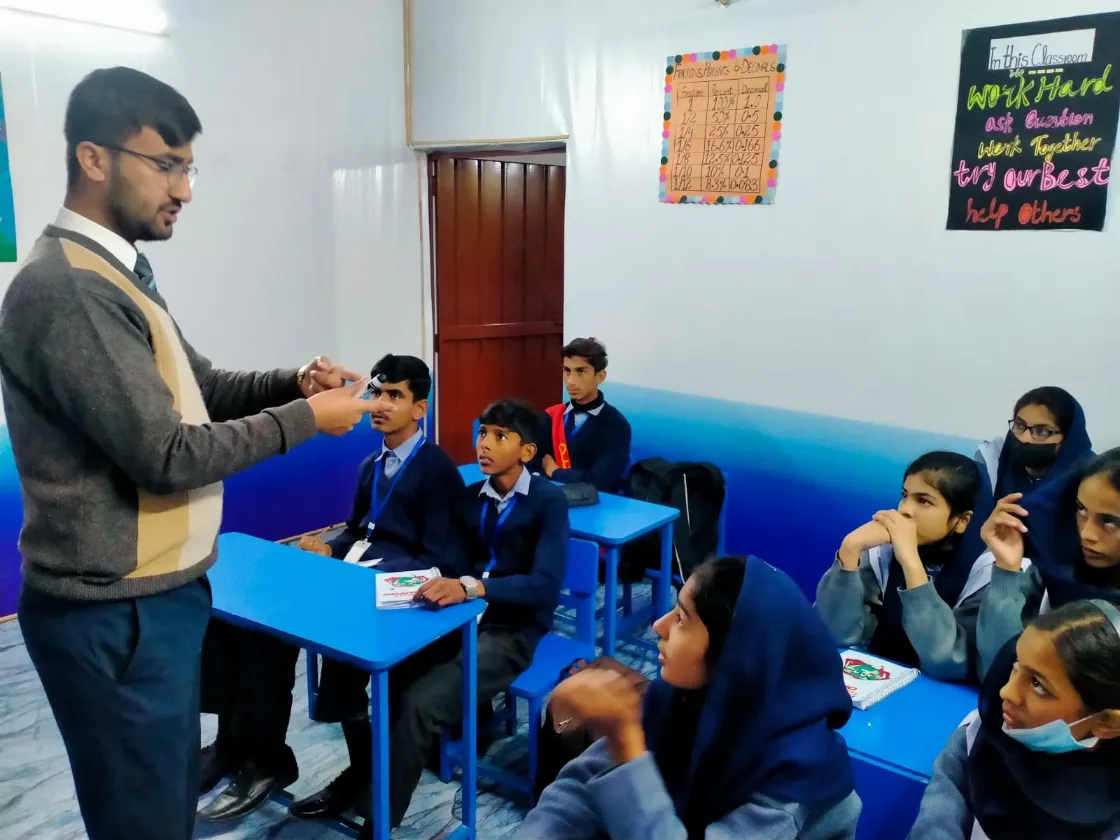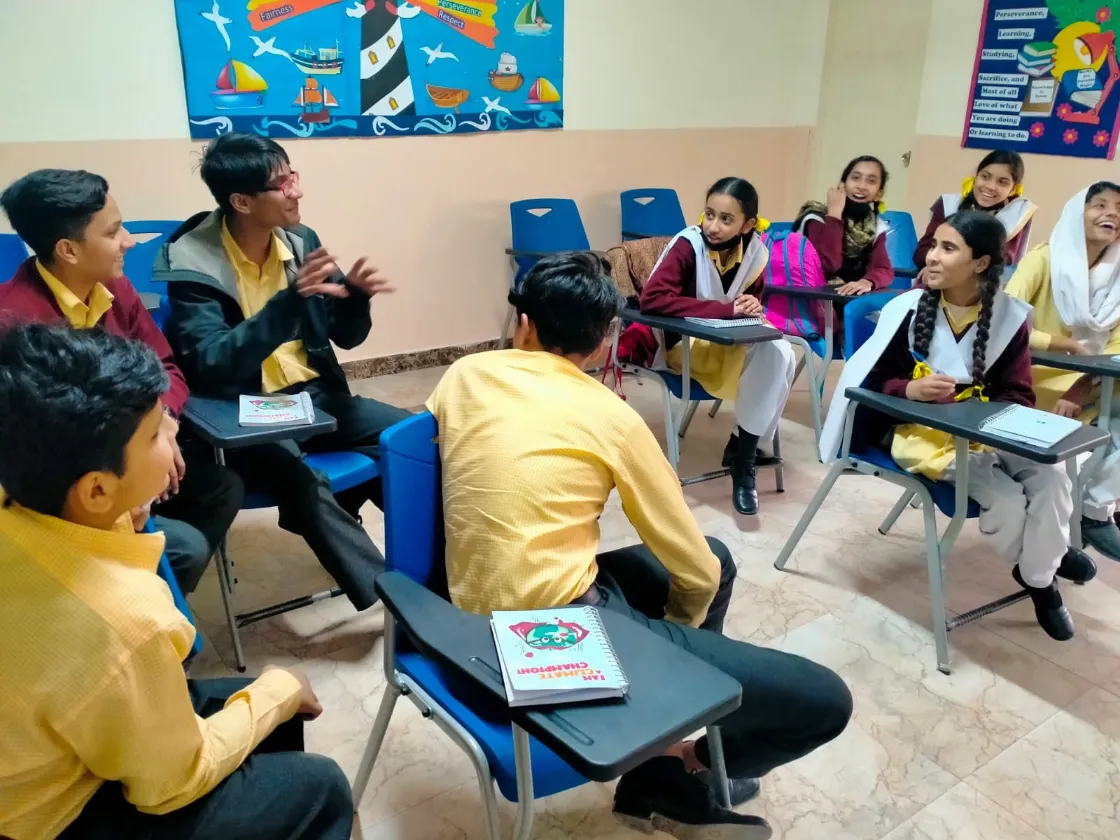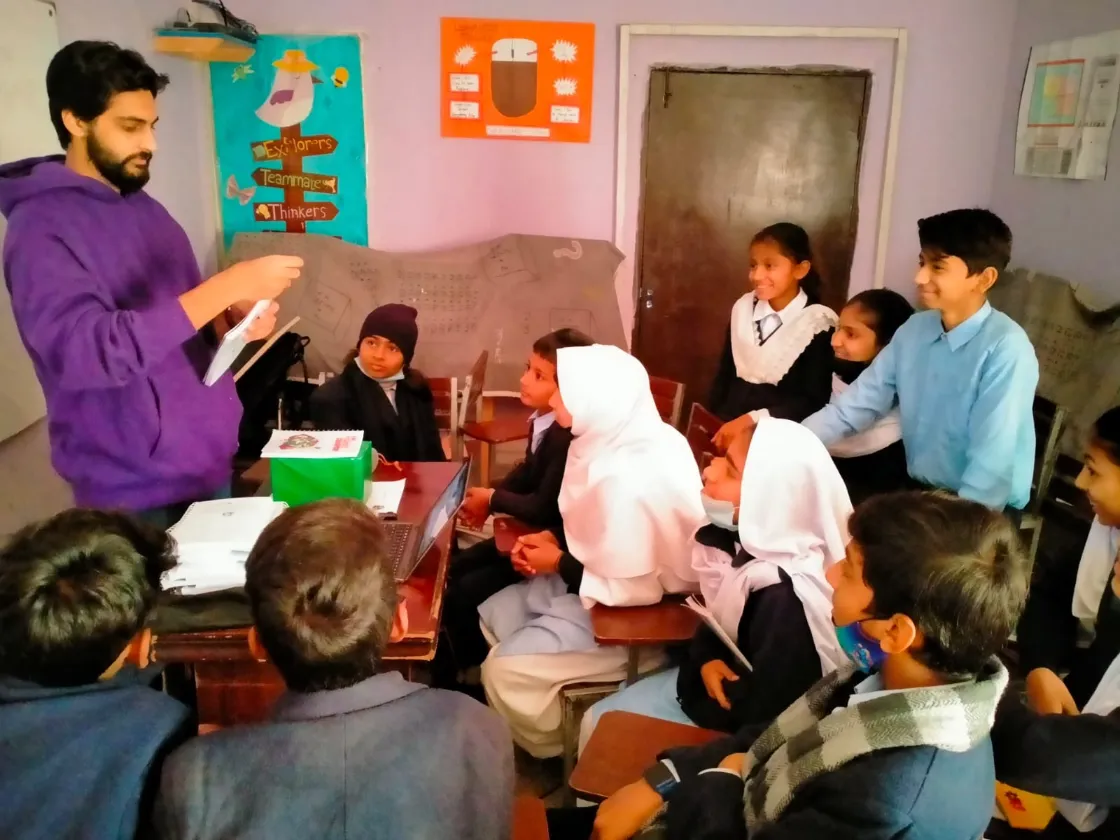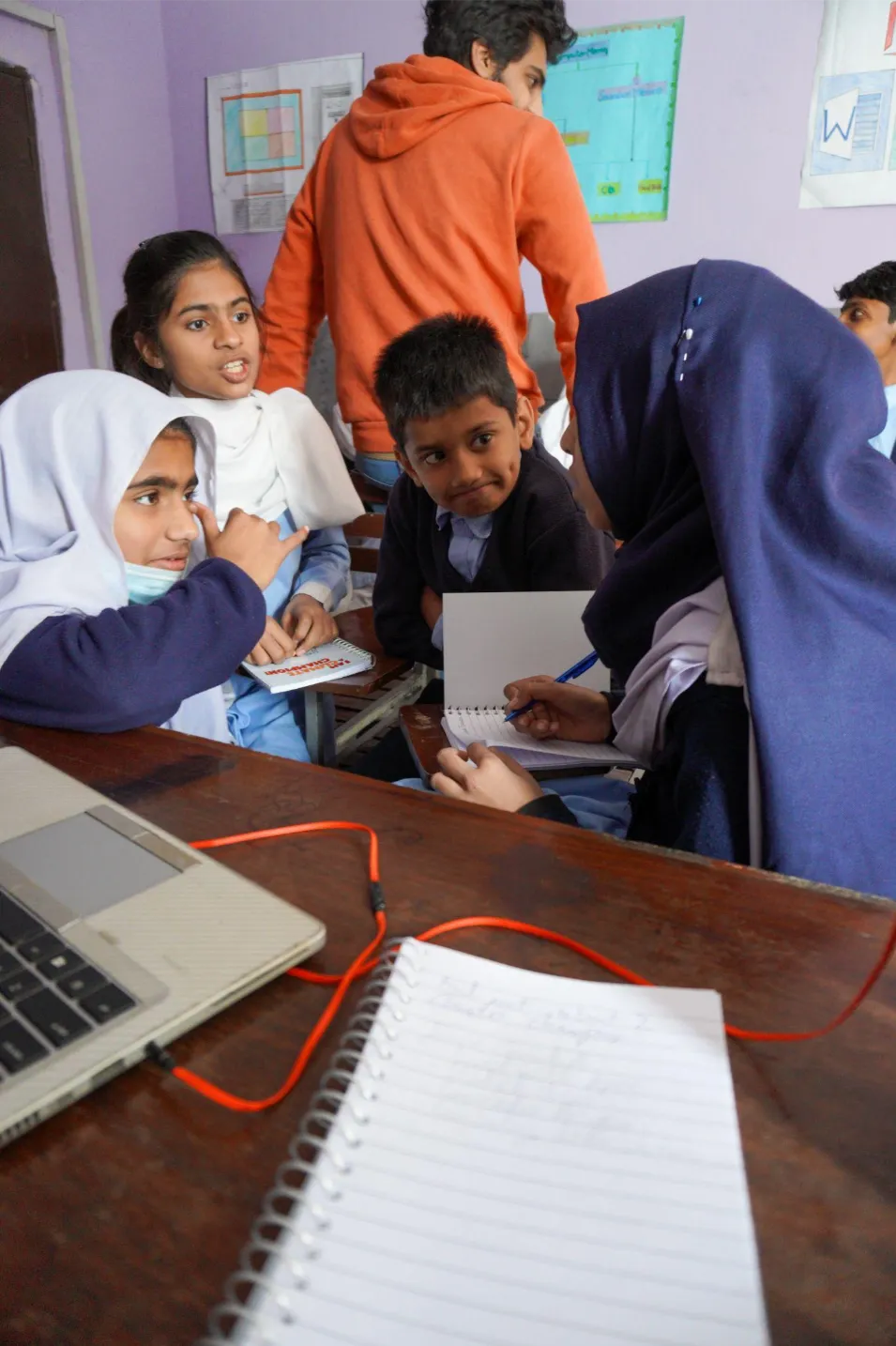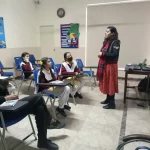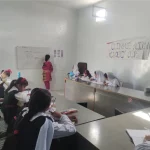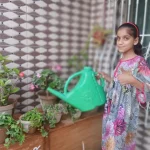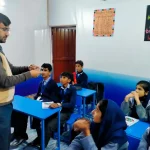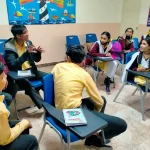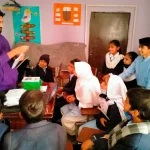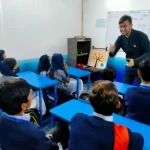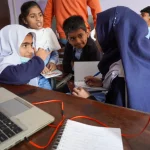Teacher: Arooj Khalid

Arooj Khalid
Arooj is a climate and girls’ education activist from Pakistan. She is pursuing a Masters in Education Policy at the Harvard Graduate School of Education as a Fulbright Scholar. She is also an Acumen and Malala Fund Girl Activist Fellow. She holds a Bachelor’s Degree in Education and completed the UGRAD exchange program at Michigan State University serving as a cultural ambassador of Pakistan to the U.S. Department of State. Arooj serves as an activist advisor to the Malala Fund’s Gender Transformative Education Program and is a member of the Board of Directors at Youth Journalism International.
Usefull links related to the Solution
Overview
Recent research has shown that there is widespread climate change scepticism among Pakistani society. Through this project Arooj aims to tackle this scepticism and other misconceptions about climate change by providing quality climate change education and therefore enabling the next generation of Pakistani children to advocate and take action against climate change for themselves.
Theory of Change
The need for the Climate Action & Advocacy Club programme arose from the urgency to address climate change challenges in Pakistan, children were aware of changes in weather patterns and other local changes to agricultural practices etc but did not link these changes to climate change. By educating and empowering young people, dispelling misconceptions, and fostering climate literacy, the programme aims to inspire action and create a resilient and sustainable future.
Approach and Actions
Arooj developed six workshops which were held over a two-month period in four participating schools in three low-income areas of Pakistan. In each school, approximately 10 students were invited to join the club. Informative, fun and interactive learning activities were organised for each of the workshops. These sessions developed climate change literacy- including consideration of the social and economic factors that affect it. An understanding of the interconnectedness of the climate system and the feedback loops which exist within it was also explored to deepen the students’ knowledge. The workshops also aimed to develop the following skills; research; asset management; needs and impact assessment; and community leadership training.
Funding was then provided to the students to start community initiatives to mitigate a local climate change issue. This part of the initiative was designed to connect climate change to the daily lives of the students – as they worked on initiatives which were affecting them and their communities. Providing students with funding increased their sense of agency, helping to grow the voice of these young people. To ensure the success of the project, club facilitators were provided with detailed resources to help them carry out the workshops and the projects.
Impact
The students demonstrated their increased understanding of climate change through carrying out a survey prior to taking part in the project and after completion, significant improvements in their understanding of how human activity is affecting climate change were recorded. Successful information and clean-up campaigns were conducted by the students. Also, some students continued to be actively involved in climate change advocacy and action many months after finishing the project. Where the club was supported by the wider school community a bigger impact was found with students more engaged and for longer.
